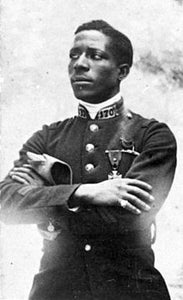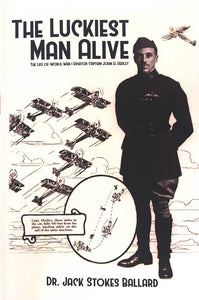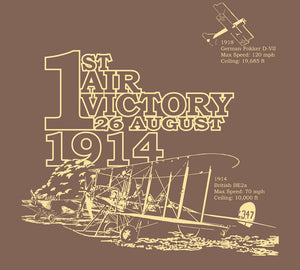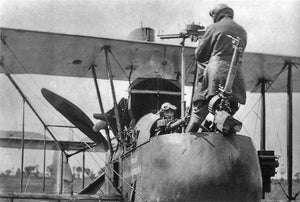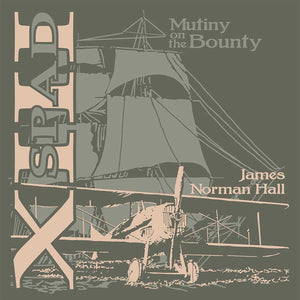Knights Without Parachutes — wwi
December 1917 Air War - Ring Out the Old, Ring In the New
eddie rickenbacker ernst udet eugene bullard frederick libby raoul lufbery red baron wwi
Perfect Christmas Present for WWI Aviation Buffs!
dangers of wwi aviation luckiest man alive wwi
Now Entering the Final Year of the First Air War
billy mitchell dangers of wwi aviation hugh trenchard influenza lafayette escadrille rfc/raf wwi
Spiders as Passengers on WWI Airplane
Spiderwebs Rated for 90 MPH Winds One hundred years ago on September 27th, Arthur Gould Lee had an uneventful patrol. So uneventful he had time to take note of natural science. He noticed some spiderwebs attached to his struts trailing in his slipstream, not breaking even at speeds of 90 mph. "They were the very fine kind that float in the air and catch your face when you're walking alongside a hedge." After he landed, he found there were not only spiderwebs, but spiders, tiny red ones, that had gone along for the flight, and were presumably ready to start on the next web....
British Pronunciation Guide to World War 1
How to Pronounce Ypres, As Recorded by Lafayette Escadrille Pilot James Norman Hall How do you pronounce Ypres? It’s an important name in WWI history, but worrying to the non-French-speaking American afraid to appear ignorant or insulting to an ally. Ee-prez? Eye-pray? Yip-ress? The British, however, had no such worries. Part of James Norman Hall’s introduction to trench warfare (before he returned to the US, wrote Kitchener’s Mob, and then became a Lafayette Escadrille pilot) was instruction in the proper British pronunciation of French words. Hall had pronounced Ypres the French way “which put me under suspicion as a ‘swanker.’” One of...

